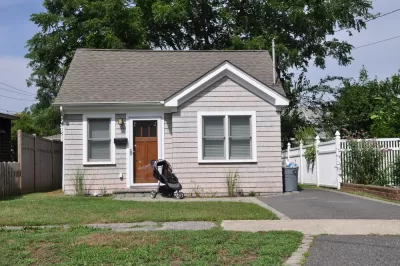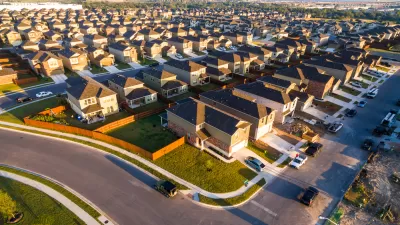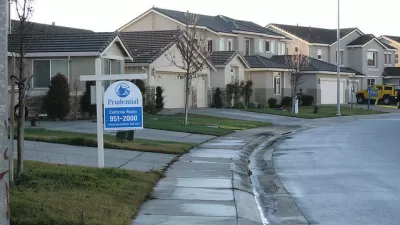With so many institutional investors buying homes, it's hard for first-time homebuyers to find space in the housing market.

Ben Casselman and Conor Daugherty write of "exploding investor interest" in starter homes. All that Wall Street capital flooding into the real estate market could make buying a home for the first time much more difficult than it already is.
Starting with a very specific example in Atlanta, before zooming out the city as a whole, the article connects the Atlanta case study to the rest of the country:
A confluence of factors — rising construction costs, restrictive zoning rules and shifting consumer preferences, among others — has already led to a scarcity of affordably priced housing in many big cities. Investors, fueled by Wall Street capital, are snapping up much of what remains.
According to Casselman and Daugherty, the post-Recession real estate activites of institutional investors was expected to dry up with the bargain prices brought about by the foreclosure crisis.
Except they didn’t stop. Last year, investors bought about one in five starter homes in the United States (defined as priced in the bottom third of the local market), according to CoreLogic. That was even higher than in the early years after the Great Recession and about double the level of two decades ago. In the most frenzied markets, investors bought close to half of the most affordable homes sold last year, and as much as a quarter of all single-family homes.
These investors take many forms, and also choose many courses of actions once they have their hands on residential properties. Some flip the properties, like the old days before the Recession, and other rent them out on Airbnb and the like.
Meanwhile, young people are denied chances to enter the market and existing residents are prices out of their neighborhoods.
What is happening in Atlanta is partly a familiar story of gentrification pushing up prices and driving out longtime residents. But those trends are being spurred by a fast-growing industry that promotes investment in single-family homes: lenders who provide the capital, brokers who handle transactions, wholesalers who buy homes by the dozens and sell them before they even take possession.
FULL STORY: Want a House Like This? Prepare for a Bidding War With Investors

Maui's Vacation Rental Debate Turns Ugly
Verbal attacks, misinformation campaigns and fistfights plague a high-stakes debate to convert thousands of vacation rentals into long-term housing.

Planetizen Federal Action Tracker
A weekly monitor of how Trump’s orders and actions are impacting planners and planning in America.

In Urban Planning, AI Prompting Could be the New Design Thinking
Creativity has long been key to great urban design. What if we see AI as our new creative partner?

King County Supportive Housing Program Offers Hope for Unhoused Residents
The county is taking a ‘Housing First’ approach that prioritizes getting people into housing, then offering wraparound supportive services.

Researchers Use AI to Get Clearer Picture of US Housing
Analysts are using artificial intelligence to supercharge their research by allowing them to comb through data faster. Though these AI tools can be error prone, they save time and housing researchers are optimistic about the future.

Making Shared Micromobility More Inclusive
Cities and shared mobility system operators can do more to include people with disabilities in planning and operations, per a new report.
Urban Design for Planners 1: Software Tools
This six-course series explores essential urban design concepts using open source software and equips planners with the tools they need to participate fully in the urban design process.
Planning for Universal Design
Learn the tools for implementing Universal Design in planning regulations.
Appalachian Highlands Housing Partners
Gallatin County Department of Planning & Community Development
Heyer Gruel & Associates PA
Mpact (founded as Rail~Volution)
City of Camden Redevelopment Agency
City of Astoria
City of Portland
City of Laramie




























